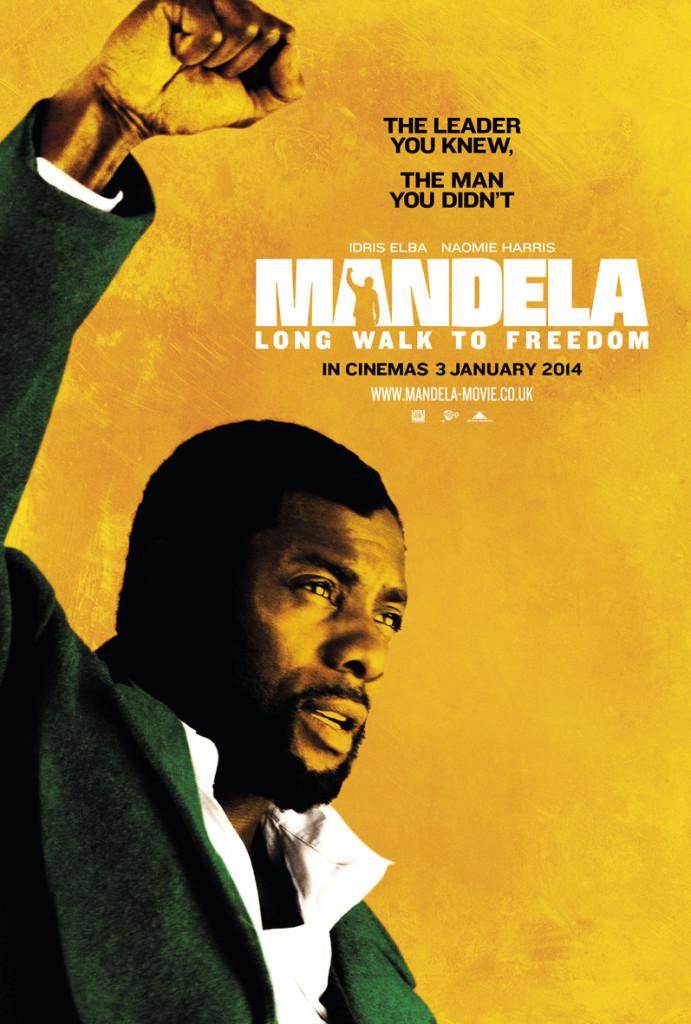Mandela: Long Walk to Freedom
Laughter fills the air as a football soars into the arms of a sophomore boy, a girl claims victory over her “kingdom” and a group of high school kids battle for dominant position on a rock. Not far from there, other students eat their lunch with friends, just observing. Observing and reliving childhood memories in the community park. Observing the innoncence through the exhibition of childhood, how different everyone was and how those differences were accepted so easily with little thought. And observing how different their lives were from the ones they had just seen in “Mandela: Long Walk to Freedom”.
On January 29, 2014, 138 AP World History students had the opportunity to see the chronological movie of Nelson Mandela’s life at AMC theatreswith histrory teachers, Mrs. Eheman and Ms. Zahradnik.
The movie they watched was “Mandela: Long Walk to Freedom”. It told the story of the contributions and sacrifices Nelson Mandela had made for his country, South Africa, and his people, to live equally with the white man. His journey is lifelong and on the way he loses many friends, family and years of his life for the ultimate goal of freedom. The movie was emotional and powerful, telling not only the African peoples’ sorrow but also their vengeance. The victims of the unfairness in South Africa was received by everyone. No one was unaffected and director Justin Chadwick, with the help of great actors and actresses such as Idris Elba as Nelson Mandela and Naomie Harris as Winnie Mandela, were able to express the battle the people fought externally and internally.
“I thought it was a very interesting movie and very inspirational. It’s very weird to watch all this insane stuff that happened not long before I was born and not to know much about it until recently seeing the movie. I knew of Nelson Mandela but I didn’t know what he was about. When he died they said he did great things but I didn’t know anything before he, quote, ‘Made it’,” said sophmore, Alesondra Cruz.
“I thought it was very inspirational. It was really weird, I heard about Mandela from my parents, they made sure I knew who he was and what he did for South Africa. But before I had only heard the great things he had done. [Now I see] he had a lot of faults. Perfect Mandela had a lots of faults [highlighted] in the movie. He had a different side to faultless Mandela they made of him,” said sophmore Grace Elliot.
However not everyone had a positive view of the movie.
“[I was] embarrassed,” sophmore Phoebe Diep said. “Very embarrassed… There were some parts that were . . . graphic. Inappropriate. Some parts [I regret seeing].”
But the teachers didn’t mind the relatively adult parts because “the movie did a really good job at highlighting Nelson Mandela.”
“We tend to think people like that are saints, but they’re not,” Eheman said. “They make mistakes too. It was good at telling all his contributions to history.”
So if a George Ranch student was put in the position of the people of South Africa, how would they handle it?
“We had an easier life. Not everyone is dying at every corner,” said sophmore Esmeralda Cruz. “I would probably peacefully rebel- defy the laws but don’t use violence. I’m not going to kill someone. [Instead I’d] boycott, not go to work, [and] refuse their jobs.
But would that peaceful disposition change if she experienced the isolation Winnie Mandela had to endure? Taken away from her family, being harassed and beaten, not seeing sunlight for a year?
“[Winnie Mandela’s actions] I don’t agree with,” Cruz said. “She let her revenge and bitterness get in the way. She kept saying violence when peace was almost accepted. If I went through what she did I probably would need support, but I wouldn’t kill others.”
All students’ opinions vary, because every person is different. No one knows exactly what they would do if they were in that situation unless personally put through everything those people had to endure for years. Luckily these students haven’t had to face these decisions and hopefully they’ll never have to. The Nelson Mandela movie might not be everyone’s top five movie pick, but it did have advice ingrained into the story. It showed what happens when diversity is used to separate people and what happens when violence is used as a solution and how peace beats it as a weapon. But not many students worry about this as they chase after friends and plunge down the slide of a playground. Throwing the football and claiming a “kingdom”, students don’t worry about claiming their freedom when they already have it. It’s just those observers who see, that people like Mandela made this possibly for their own lands as well.

Megan Perrin: the best at making "cynical" and "optimistic" a synonym. This is her second year working with The Wrangler, after taking a year break she's...



